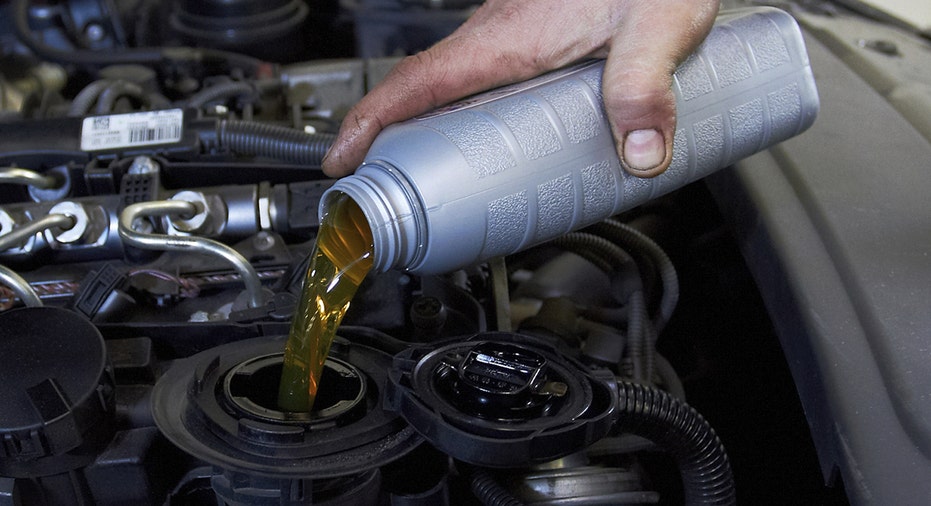Spend the extra dough on synthetic engine oil, AAA says

Here’s something to consider the next time your ride is in the shop. Not all cars require it, but motorists should spend the extra cash and upgrade to synthetic oil, AAA advises in a new study.
Tests conducted by the travel group showed that synthetic oil outperformed conventional oil by an average of 47% for an additional cost of about $5 per month, based on a factory-recommended schedule for oil changes.
Any oil that meets the manufacturer’s standards is safe to use, AAA noted, but the test results indicated that synthetic oil will offer better engine protection—even if the vehicle isn’t required to use the more expensive oil.
“With its superior resistance to deterioration, AAA’s findings indicate that synthetic oil is particularly beneficial to newer vehicles with turbo-charged engines and for vehicles that frequently drive in stop-and-go traffic, tow heavy loads or operate in extreme hot or cold conditions,” said John Nielsen, AAA’s managing director of automotive engineering and repair.
In a nationwide survey, 44% of U.S. drivers are either unsure or don’t believe that synthetic oil is better for their vehicles. Many drivers feel the upgrade is an unnecessary up-sell by repair facilities, AAA said. Other drivers said they aren’t given a choice or think synthetic oil is too expensive.
Making the switch would cost the average driver $64 more per year, or $5.33 per month. Auto repair facilities approved by AAA charge $38 on average for a conventional oil change, according to a separate survey. A synthetic oil change is typically $70. Drivers can save money if they perform oil changes themselves.
AAA also found that 83% of service professionals choose synthetic oil for their own vehicles.
“While a manufacturer-approved conventional oil will not harm a vehicle’s engine, the extra $30 per oil change could actually save money in the long run by protecting critical engine components over time,” Nielsen said.
The report stands in contrast to AAA’s findings that consumers waste billions of dollars each year on premium gasoline. While some cars require high-octane fuel, other vehicles don’t see improved performance or fuel-efficiency when they run on premium, AAA says.



















